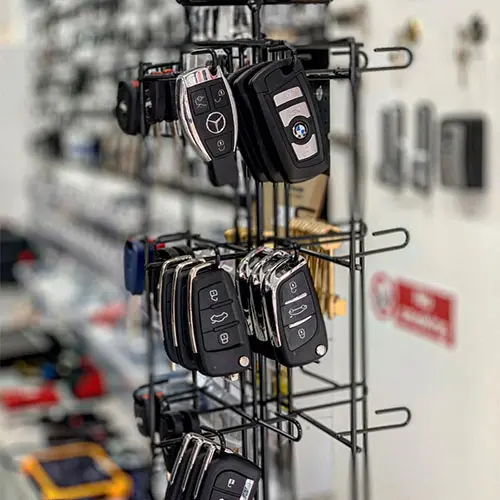car-key-refurbishment7449
car-key-refurbishment7449
The Most Underrated Companies To Watch In The Vehicle Lock Repairs Industry
Vehicle Lock Repairs: Ensuring Safety and Security
In a world where vehicle theft and break-ins are common, ensuring that a vehicle’s locking mechanism is working efficiently is vital for both safety and security. Vehicle lock repairs include a variety of repairs and upkeep treatments that address concerns related to locks and ignition systems. This short article supplies a summary of the types of vehicle Key programming (code.dsconce.space) lock issues, signs of breakdown, repair options, and preventative measures while likewise responding to some frequently asked questions.
Comprehending Vehicle Lock Mechanisms
Vehicle locks employ different systems that differ among makes and models. The main elements of a vehicle lock system generally include:
- Key Cylinder: The part where the key is placed.
- Locking Bolt: Engages and secures the door when locked.
- Lock Assembly: Holds the door closed however can be disengaged when unlocking.
- Ignition Lock: Secures the ignition system of the vehicle.
Each of these parts can be prone to use and tear or unforeseen failure, leading to lock-related issues.
| Element | Description | Typical Issues |
|---|---|---|
| Key Cylinder | Accepts the key to operate the lock | Key jams, problem turning the key |
| Locking Bolt | System that secures the door when locked | Bolt misalignment, stuck bolt |
| Latch Assembly | Engages and disengages to protect the door | Broken latch, improper function |
| Ignition Lock | Secures the ignition to begin the vehicle | Key will not turn, ignition failure |
Signs of Lock Malfunction
Vehicle owners should be vigilant for indications that their lock systems may be stopping working. Some typical signs of lock concerns consist of:
- Difficulty Inserting Key: If the key does not quickly suit the cylinder, there may be debris inside or use taking place within the cylinder.
- Stuck Key: A key that gets stuck while turning can suggest internal damage or misalignment.
- Locked Door Will Not Unlock: If a door declines to unlock, it might be due to a malfunctioning locking bolt or latch.
- Uncommon Noises: Grinding or clicking noises while trying to lock or unlock the door can show structural problems in the locking system.
- Faulty Remote: If the key fob is not responding, the issue may lie not just with the fob’s battery but might likewise point towards issues in the lock receiver in the vehicle.
Repairing Vehicle Locks
Handling a vehicle lock issue can be complex, and while some repairs can be dealt with in your home, others may need expert help.
Do it yourself Repairs
Some small lock concerns can be fixed without the aid of a mechanic. Here are a few examples:

- Lubrication: Regularly apply a silicone-based lube to key cylinders and locks to avoid sticking.
- Tidy the Key: Dirt on the key can trigger jamming in the key cylinder. Tidy keys with rubbing alcohol to eliminate dirt or residue.
- Inspect the Battery in the Remote: For remote key fobs, validate that the battery is functional by testing it with another vehicle or having it changed.
Professional Repairs
For more substantial issues, expert repairs might be necessary. Typical expert services include:
- Key Replacement: If the key is lost or harmed, a locksmith can create a brand-new key or rekey the lock.
- Reprogramming Key Fobs: Sometimes the remote requirements to be reprogrammed to sync with the vehicle’s receiver.
- Comprehensive Lock Replacement: In extreme cases, entire locking mechanisms may require replacement due to damage or wear.
Preventative Measures
To extend the lifespan of vehicle locks and prevent problems, consider the following preventative steps:
- Regular Maintenance: Periodic examination and lubrication of locks can prevent future breakdowns.
- Prevent Excessive Force: Handling keys and doors gently can lower endure locking systems.
- Right Away Address Issues: If problems emerge, addressing them without delay can avoid additional damage and more costly repairs.
Often Asked Questions
Q: How do I understand if my vehicle lock needs repair?A: Look for indications such as problem placing the key, odd sounds, or the door failing to lock or unlock. Q: Can I repair a stuck lock myself?A: Simple issues such as lubrication might
be dealt with in the house; however, complex problems normally require specialists. Q: How much does it cost to repair a vehicle lock?A: Costs can differ commonly based upon the problem and vehicle type. Standard repairs might start around ₤ 50, whereas lock replacements can cost several hundred dollars. Q: What need to I do if I lose my car key?A: Contact a locksmith or your dealership for a replacement key. They may require your vehicle identification number (VIN )to develop a brand-new key. Q: Are aftermarket keys as reliable as initial keys?A: Aftermarket keys can be less reputable than OEM keys, as they might not abide by the exact same specs and quality standards.
Keeping the integrity of a vehicle’s lock system is
important for general security and safety. By acknowledging the indications of a malfunction, carrying out appropriate repairs, and executing preventative steps, vehicle owners can avoid the trouble and potential risks associated with lock problems. Guaranteeing that locks work properly enhances not just the vehicle’s safety but likewise the assurance of its owner.


